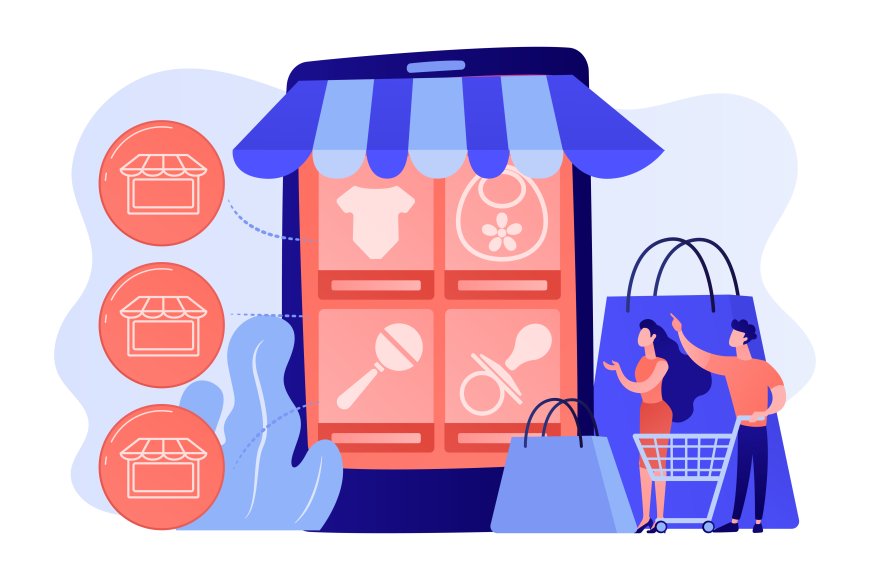The rise of e-commerce platforms for agriculture
E-commerce platforms for ag businesses are making life for farmers and ag sellers much easier. Learn what technologies help you build the best digital marketplace.

E-commerce Platforms for Direct Farm-to-Consumer Sales
E-commerce is transforming the agricultural industry by providing farmers with direct access to consumers, cutting out the traditional middlemen. Online platforms specifically designed for farm-to-consumer sales are playing a pivotal role in this transition, allowing agricultural producers to control their pricing, product distribution, and overall customer experience. By leveraging these digital tools, farmers can ensure that their fresh produce reaches consumers faster, enhancing both profitability and product quality. As more farmers adopt e-commerce platforms, the agricultural market is becoming more efficient, transparent, and consumer-driven, helping to foster a more sustainable food system.
Benefits of E-commerce for Direct Farm Sales
The advantages of utilizing e-commerce platforms for farm-to-consumer sales are significant, enabling farmers to retain more of their profits while expanding their market reach. These platforms provide a direct connection between producers and consumers, eliminating intermediaries and allowing farmers to manage their sales and pricing more effectively. Not only does this help farmers offer fresher, higher-quality products to their customers, but it also opens up new revenue streams by tapping into broader markets that would otherwise be out of reach for small-scale producers.
In addition, e-commerce platforms streamline the entire sales process, reducing the time and effort required for marketing, inventory management, and customer interaction. This digital approach to farming also fosters stronger relationships between producers and consumers, as customers can engage directly with the farmers growing their food, learn about sustainable farming practices, and make informed purchasing decisions.
By establishing a farm-to-consumer website, farmers gain control over their brand, customer experience, and engagement. These platforms offer integrated features such as online payment systems, shipping automation, and real-time order tracking, enabling farmers to focus on growing and producing rather than logistical challenges. As a result, e-commerce for farmers is not only boosting profitability but also enhancing efficiency and sustainability across the food supply chain.
Key Features to Consider When Choosing an E-commerce Platform
When selecting an e-commerce platform for direct farm-to-consumer sales, it is important to look for specific features that cater to the unique needs of agricultural businesses. A platform with an intuitive interface allows farmers to easily list products and manage inventory without requiring advanced technical skills. Additionally, features such as integrated payment systems, shipping automation, and real-time order tracking make managing the entire sales process more efficient.
Moreover, platforms that offer advanced analytics can provide valuable insights into consumer behavior, helping farmers refine their marketing strategies and better understand their audience. Having the ability to tell the story of the farm, highlight sustainable practices, and engage consumers through rich content can also set a farm apart in a crowded marketplace.
Finally, it is important to choose a platform that accommodates the seasonal nature of agriculture, offering flexibility in product listings and updates to reflect changes in product availability. Strong customer support and resources for navigating the digital marketplace are also essential for success.
Success Stories of Farmers Embracing E-commerce
Farmers across the globe have experienced remarkable growth by adopting e-commerce platforms. By shifting from traditional sales channels to direct-to-consumer models, many producers have increased their revenue streams and market visibility. For instance, a small organic farm in the Midwest saw a dramatic rise in sales after launching its e-commerce store, reaching new customers and establishing a loyal customer base through direct engagement.
Similarly, a family-owned farm that diversified its offerings online gained new market segments and saw a steady increase in sales. These examples underscore the potential for farmers to thrive in the digital economy by embracing e-commerce platforms tailored to their needs.
The Future of Agriculture E-commerce
As the agricultural industry continues to evolve, e-commerce platforms will play an increasingly important role in shaping the future of farm-to-consumer sales. By adopting these digital tools, farmers can expand their businesses, improve profitability, and build stronger relationships with consumers who value fresh, locally sourced food. Through innovative e-commerce solutions, the agriculture industry can continue to grow in ways that are sustainable, equitable, and beneficial for both producers and consumers alike.
What's Your Reaction?
 Like
0
Like
0
 Dislike
0
Dislike
0
 Love
0
Love
0
 Funny
0
Funny
0
 Angry
0
Angry
0
 Sad
0
Sad
0
 Wow
0
Wow
0





















































:strip_icc():format(webp)/kly-media-production/medias/5082523/original/082651200_1736234619-patrick.jpg)



















































